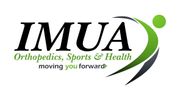When Should I Take a Break From Working Out?

Exercise has vast health benefits, but there may come a time when you’re pushing it too hard and need to give your body some rest. Competitive athletes build recovery time into their training regimen for performance optimization. But most individuals who are simply trying to improve their fitness may not know when to take a break. Here’s what you need to know about rest periods to keep your body healthy.
A Guide to Taking Time Off From Exercise
Why Do You Need to Take Breaks?
Training your body, whether it’s for a sporting event or to improve fitness, helps your body become more efficient. When you perform cardiovascular activities, such as running or swimming, your heart and lungs optimize their ability to work under duress. With strength training, muscle mass increases. But repeatedly working the same body parts can take its toll, both mentally and physically. With too much high-intensity exercise, you may run the risk of overtraining, which could lead to injury, fatigue, and declining performance.
What Are the Signs You Need Rest?
Many competitive athletes schedule a full week’s rest into their program every 8 to 12 weeks. For the noncompetitive fitness enthusiast, however, a break may still support performance optimization. If you find yourself dreading your workouts, feel tired and sore even after decreasing intensity or taking a day off, your progress has plateaued, or you experienced an injury or illness, it’s likely time to take a few days up to a week off. It may also be worthwhile to take a break during a vacation or whenever you can’t get to a gym or work out as frequently.
Will Rests Impede Your Results?
 Breaks of two weeks or less shouldn’t begin to impact cardiovascular efficiency until the 10- to 12-day mark. By four weeks, however, VO2 max, or the maximum amount of oxygen you can use during vigorous exercise, may decline by as much as 20%. Strength and muscle mass are more difficult to measure, but it’s suspected changes may not take place for up to a month. Nonetheless, you may feel weaker when returning to strength even after a short break.
Breaks of two weeks or less shouldn’t begin to impact cardiovascular efficiency until the 10- to 12-day mark. By four weeks, however, VO2 max, or the maximum amount of oxygen you can use during vigorous exercise, may decline by as much as 20%. Strength and muscle mass are more difficult to measure, but it’s suspected changes may not take place for up to a month. Nonetheless, you may feel weaker when returning to strength even after a short break.
Ultimately, when needed, breaks can give you the respite needed to drive performance optimization, allowing you to come back to your workouts feeling fully recovered and mentally engaged. While time off from your normal routine may be what your mind and body needs, you can stay physically active with low-intensity exercises, such as walking and stretching, in the meantime.
If you’re seeking ways to get stronger and perform well without injury, IMUA Orthopedics, Sports & Health in Honolulu, HI, can help. These sports medicine specialists help both beginning athletes and competitors recover from previous injuries and prevent future ones with patient-oriented treatment plans. Learn about how they help with performance optimization by visiting their website or call (808) 521-8170 to schedule an appointment.
About the Business
(12 reviews)
Have a question? Ask the experts!
Send your question

